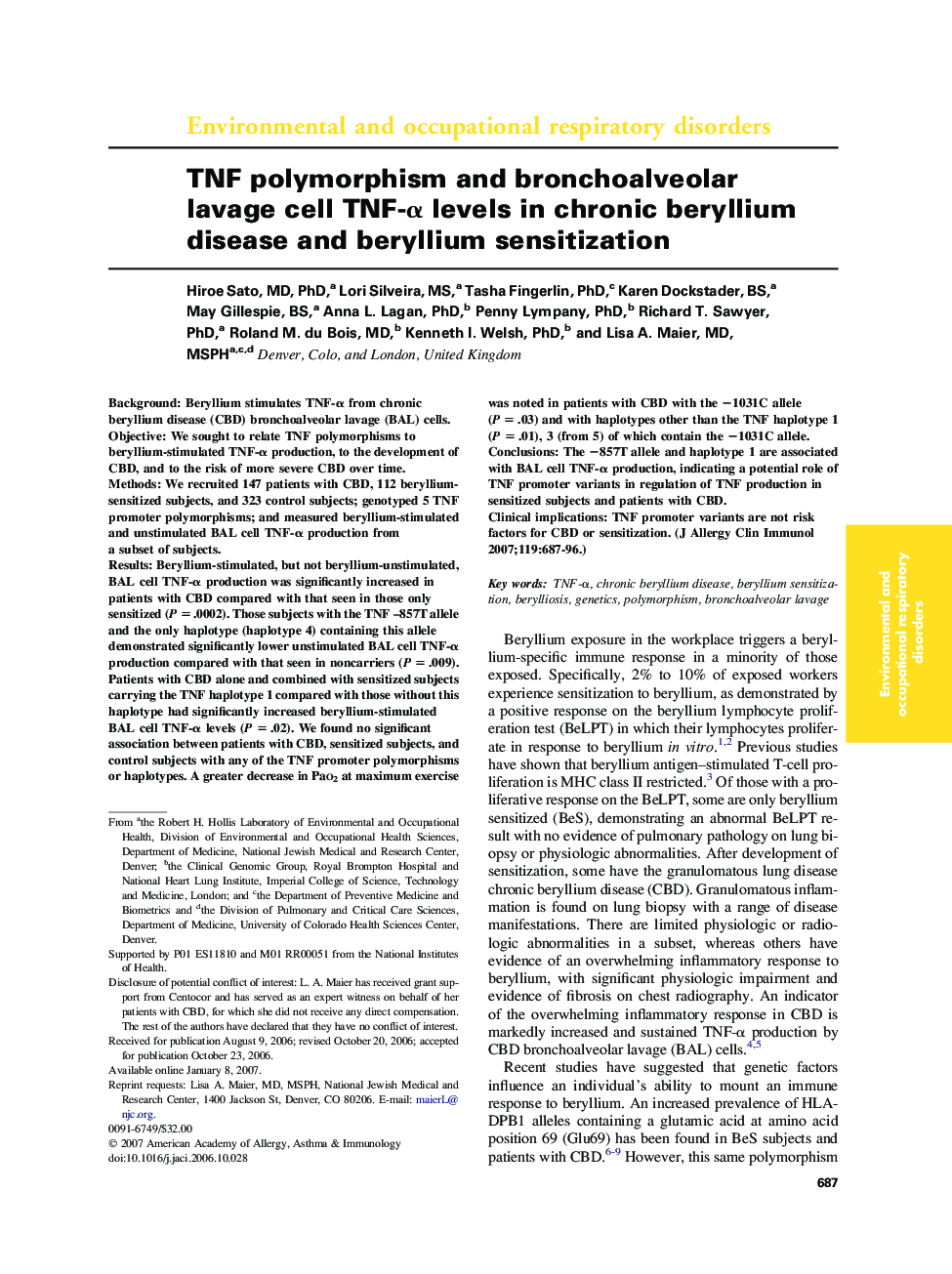| کد مقاله | کد نشریه | سال انتشار | مقاله انگلیسی | نسخه تمام متن |
|---|---|---|---|---|
| 3203418 | 1201998 | 2007 | 10 صفحه PDF | دانلود رایگان |

BackgroundBeryllium stimulates TNF-α from chronic beryllium disease (CBD) bronchoalveolar lavage (BAL) cells.ObjectiveWe sought to relate TNF polymorphisms to beryllium-stimulated TNF-α production, to the development of CBD, and to the risk of more severe CBD over time.MethodsWe recruited 147 patients with CBD, 112 beryllium-sensitized subjects, and 323 control subjects; genotyped 5 TNF promoter polymorphisms; and measured beryllium-stimulated and unstimulated BAL cell TNF-α production from a subset of subjects.ResultsBeryllium-stimulated, but not beryllium-unstimulated, BAL cell TNF-α production was significantly increased in patients with CBD compared with that seen in those only sensitized (P = .0002). Those subjects with the TNF –857T allele and the only haplotype (haplotype 4) containing this allele demonstrated significantly lower unstimulated BAL cell TNF-α production compared with that seen in noncarriers (P = .009). Patients with CBD alone and combined with sensitized subjects carrying the TNF haplotype 1 compared with those without this haplotype had significantly increased beryllium-stimulated BAL cell TNF-α levels (P = .02). We found no significant association between patients with CBD, sensitized subjects, and control subjects with any of the TNF promoter polymorphisms or haplotypes. A greater decrease in Pao2 at maximum exercise was noted in patients with CBD with the −1031C allele (P = .03) and with haplotypes other than the TNF haplotype 1 (P = .01), 3 (from 5) of which contain the −1031C allele.ConclusionsThe −857T allele and haplotype 1 are associated with BAL cell TNF-α production, indicating a potential role of TNF promoter variants in regulation of TNF production in sensitized subjects and patients with CBD.Clinical implicationsTNF promoter variants are not risk factors for CBD or sensitization.
Journal: Journal of Allergy and Clinical Immunology - Volume 119, Issue 3, March 2007, Pages 687–696